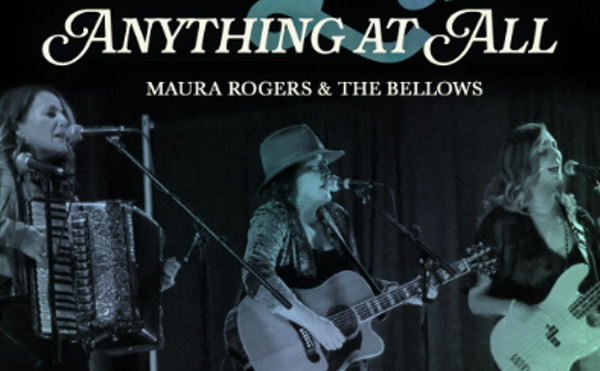Far from merely expounding his views on rock and roll, Bangs pretty much lived the life, albeit in a decidedly low-rent kind of way. DeRogatis interviewed numerous people with whom Bangs interacted and, to create a clearer picture of his subject, includes quotations from Bangs's writings, including his diary-like unpublished manuscripts. The portrait that emerges is of a lonely, even sensitive soul lurking beneath a frequently brash exterior. Though rather goofy-looking in appearance -- Bangs resembled Rob Reiner during the latter's Meathead days -- Bangs was a punk at heart who, in the author's words, "agitated for sounds that were harsher, louder, more electric, and more alive, charting if not defining the aesthetics of heavy metal and punk."
Born December 13, 1948, to a hard-drinking father (who died in a fire, presumably sparked by his own cigarette, when Bangs was a child) and a mother who, as a devout Jehovah's witness, would routinely take her son along during door-to-door proselytizing, Bangs quickly chafed against his strict upbringing. Living in the dusty valley of El Cajon, California, Bangs reinvented himself, embracing a hipster nonconformity. He took a lot of drugs, imitated the wild-eyed stare of occultist Aleister Crowley, and envisioned himself sporting a whole new persona. "I used to dream of a critic writing somewhere that I was possessed by a demonic style, burning with insane ferocity," he wrote, "but where to score demonic ferocity in the ice cream and television world of El Cajon?"
Bangs found his calling when he answered an ad requesting reviewers for a fledgling publication called Rolling Stone. With a love for dense and distorted sounds (the Velvet Underground was a personal favorite), "Lester had a different standard for judging music," DeRogatis observes, "a way of finding beauty in unconventional places." Bangs eventually proved too antagonistic a writer for Editor Jann Wenner, who once had to flee via the fire escape when an enraged Buddy Miles stormed into the Rolling Stone offices after reading one too many of Bangs's scathing reviews. Fired by Wenner after writing a nasty but funny review of Canned Heat ("I never did get along with Jann, because he really likes the suck-up type of writing," Bangs remarked later), he found a more suitable forum for his gonzo writing style at Creem magazine.
Founded in Detroit in 1970, Creem took a decidedly irreverent approach to rock journalism. Billing itself as "America's Only Rock 'n' Roll Magazine" Creem counted mail-order head shops among its steadiest advertisers and boasted contributors who wrote with a rock and roll attitude. Under Assistant Editor Bangs, the magazine championed such Detroit mainstays as the Stooges, MC5, and Mitch Ryder, as well as rough-and-ready garage bands. Bangs, who authored wisecracking articles with titles like "Screwing the System With Dick Clark" and "Jethro Tull in Vietnam," nixed fawning celebrity profiles. (Indeed, Bangs "sprang into his abusive stance at the first sign of self-importance," as DeRogatis puts it.)
He wasn't deferential when it came to interviewing his idols, either. (Lou Reed, the object of Bangs's longstanding obsession, was goaded mercilessly by the writer, thus earning him Reed's undisguised contempt.) In Bangs's view, he, along with fellow rabble rousers Nick Tosches and Richard Meltzer (collectively known as "the Noise Boys"), were heirs to the Beats of the '50s.
For all his razor-edged diatribes in print, Bangs possessed a highly tuned sensitive streak. He could be disillusioned when his heroes failed to live up to his ideals (expecting the Clash to be "righteous," Bangs was dismayed to witness them engaging in food fights and laughing while their driver beat up a young fan). He was also hurt when an artist reacted badly to his more critical reviews. (Patti Smith turned on Bangs following his negative review of her second recording, Radio Ethiopia.) With rock becoming big business and Creem moving ever further into the mainstream, Bangs went on to write for the staid Village Voice in 1977. By then he was itching to do more than just write about rock and roll. As he saw it, "rock and roll is an attitude, and if you've got the attitude you can do it, no matter what anybody says." Problem was, by all accounts, Bangs didn't have what it takes. His sloppy CBGB debut with the Lester Bangs Conspiracy was greeted with laughter from the audience, while his next band, Birdland, was described by Ian Hunter, among others, as being "bloody awful."
In the end, Bangs remained a man of unfulfilled ambitions. His dream of writing the great novel and being viewed as a serious author never materialized. Further, as DeRogatis observes, with the advent of People magazine and the subsequent flourishing of celebrity culture -- which greatly influenced the rock press, resulting in "shorter, more superficial reviews" -- Bangs's style of critical journalism was simply falling out of fashion. "Why submit artists to the aggressive grillings and adolescent antics of Lester Bangs or Richard Meltzer," asks DeRogatis, "when well-placed people items and fawning profiles written by cooperative young scribes made everyone so much happier?"
In his personal life, Bangs was riddled with insecurities and unlucky in love -- despite being the sensitive, romantic type -- with an emotional intensity that left some women feeling smothered. (In a telling comment, Bangs once wrote that he "might as well be dead or addicted" if he couldn't find "a good woman.") Bangs's end was a dismal one. Struggling to pay his bills, he drank a lot (a lifelong habit), drugged alone, and loathed the new music, but didn't know what else to write about. He died at age 33 of a suspected drug overdose.
Though the author successfully captures what he calls Bangs's "lust for life," he never really gets to the heart of Bangs's obvious torment. Bangs's excesses always seemed motivated by something deeper than the simple desire to live out his rock and roll fantasies. When DeRogatis quotes Bangs's therapist, who states that, in his estimation, his patient didn't suffer from clinical depression, the reader is bound to feel otherwise. Bangs's relationship with his staunchly devout mother warrants deeper exploration, as well. When a girlfriend sees a larger significance in Bangs's death -- following that of his mother by just six weeks ("Part of Les just died with her. She was his ultimate lifeline") -- it doesn't jibe with the rather detached way Bangs treats his mother in these pages. What, if any, lasting influence did she have over him? Was his self-destructive streak driven in any measure by residual guilt from his strict religious upbringing? What of the effect of his dad's early death? What exactly drove his demons? Though DeRogatis does a commendable job of bringing his subject vividly to life, in the end the man, whose very work was characterized by brutal honesty, remains very much a mystery.













